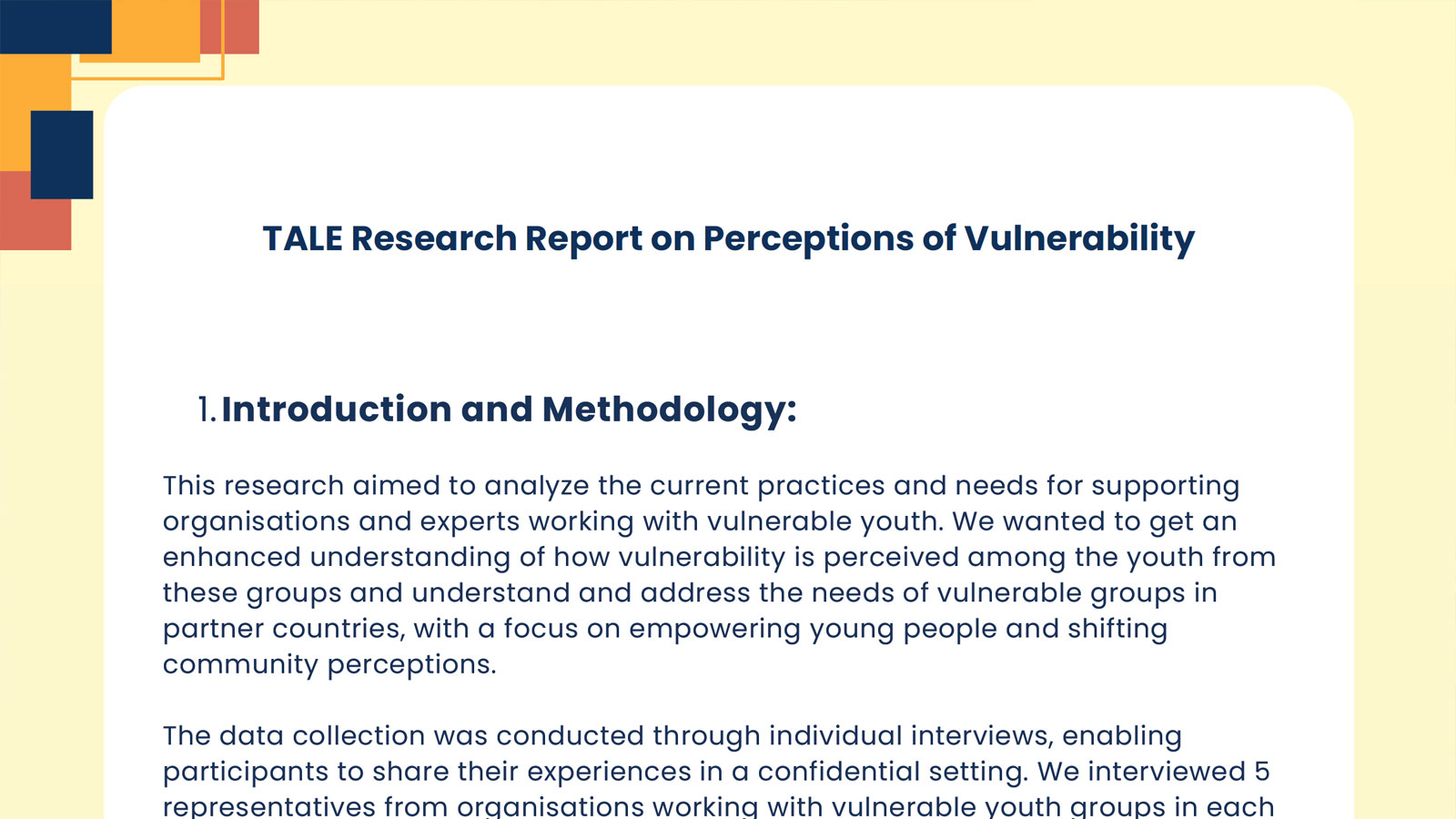

Researching Vulnerability as the Starting Point of the TALE Project
We didn’t begin the TALE project with activities or educational sessions — we began with research. Why? Because we knew that we couldn’t empower young people if we hadn’t first listened to them.
Instead of assuming their needs, challenges, or potential, we wanted to understand them within the context in which they live. That’s why we conducted in-depth interviews with young people from vulnerable groups and with those who work with them daily — youth professionals. Their stories will serve as the foundation for everything that follows in the TALE project.
Reflecting on these conversations, we noticed recurring themes: the need for support, safe spaces, and the opportunity to be seen as more than just a "problem" or a "vulnerable group". One young participant from Norway said:
"The best way to meet me: People should listen more before they start telling you what you should do. That they actually see you as a person..."
This quote struck us deeply because it captures what many young people told us — that they want to be recognized as whole individuals, not reduced to the circumstances they’re going through. Empowerment, for them, is not just about receiving support, but about having the space to define their own needs and pathways.
Our research also revealed many similarities between young people in Croatia and Norway. Despite different socio-political contexts, youth in both countries face discrimination, isolation, lack of support in educational institutions, and struggles with mental health. While Norwegian participants more often emphasized the need for non-judgmental spaces where stories could be shared, Croatian youth strongly highlighted the importance of changing societal narratives through visibility and representation.
Starting the project with research turned out to be the right decision — it allowed us to build a foundation based on real needs and lived experiences. We learned that vulnerability is not a weakness; it’s a condition that can be transformed into strength. But for that transformation to happen, we need proper support, active communities, and spaces — both physical and symbolic — that provide opportunities for expression. That’s why we continue to build TALE as a space for stories that shift perspectives, challenge stigma, and open paths to empowerment.
You can find a summary of the research among our publications.
